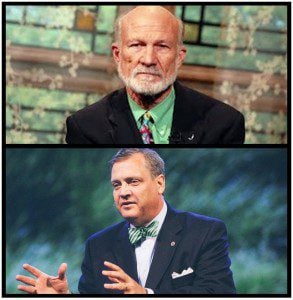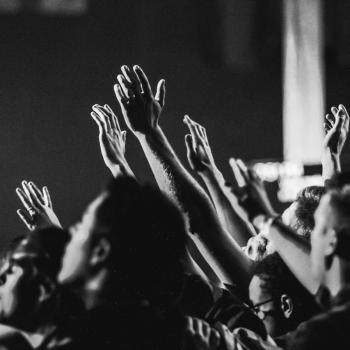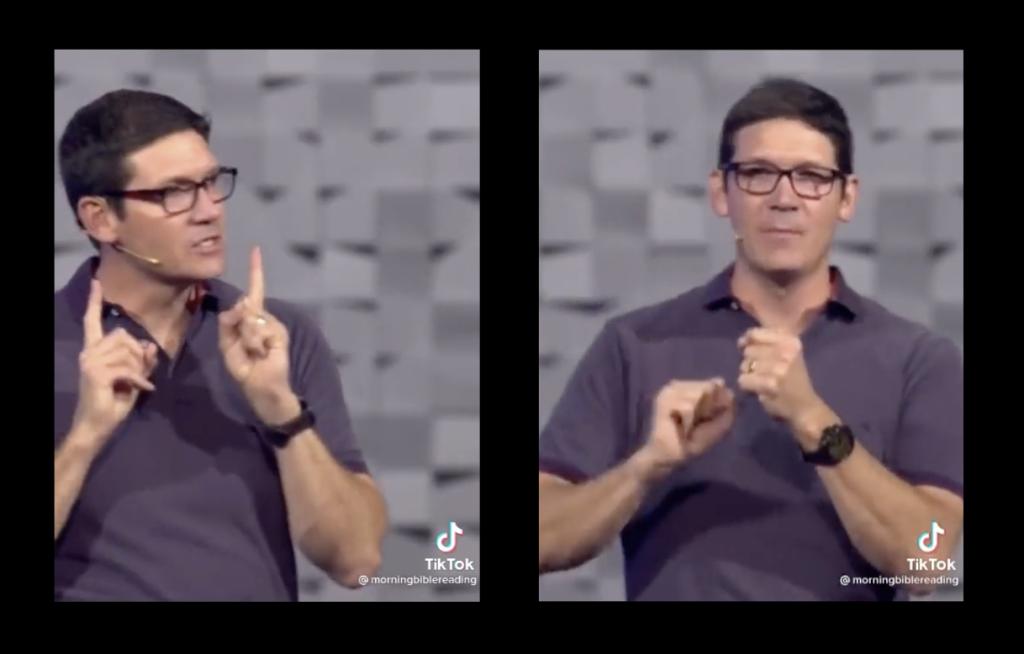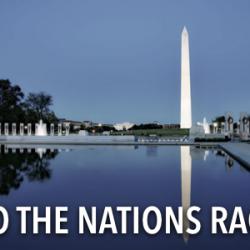 This has to be one of the more unlikely conversations I’ve ever heard between to men I have come to view quite differently over the years. I grew up a Southern Baptist in the midst of a sweet little church in Kansas whose practices far exceeded their own theology. So Al Mohler–as the author and protector of much of the theology I came to see as dubious–represents a way of thinking about God that I’ve intentionally tried to grow beyond, if not leave behind. Hauerwas represents the opposite, his work offering a corrective to my evangelical faith and ministry, championing the kind of Christianity I aspire to embody. For me, reading this interview was a serious culture clash. I have to say that I’m pleased to know that Mohler reads Hauerwas. I wish a bit more of it would bleed into the SBC. My hunch is that, as they continue to lose political and cultural power, more and more Southern Baptists and evangelicals on the whole will find in the writings of Stanley Hauerwas a helpful vision for the future of the church. I know Hauerwas’ thinking is still shaping me, and it’s all over the book I’m finishing up right now, Shrink.
This has to be one of the more unlikely conversations I’ve ever heard between to men I have come to view quite differently over the years. I grew up a Southern Baptist in the midst of a sweet little church in Kansas whose practices far exceeded their own theology. So Al Mohler–as the author and protector of much of the theology I came to see as dubious–represents a way of thinking about God that I’ve intentionally tried to grow beyond, if not leave behind. Hauerwas represents the opposite, his work offering a corrective to my evangelical faith and ministry, championing the kind of Christianity I aspire to embody. For me, reading this interview was a serious culture clash. I have to say that I’m pleased to know that Mohler reads Hauerwas. I wish a bit more of it would bleed into the SBC. My hunch is that, as they continue to lose political and cultural power, more and more Southern Baptists and evangelicals on the whole will find in the writings of Stanley Hauerwas a helpful vision for the future of the church. I know Hauerwas’ thinking is still shaping me, and it’s all over the book I’m finishing up right now, Shrink.
I’ve pulled a few good quotes and questions from their phone interview here. Mohler asked great questions, so some of this is classic Hauerwas:
__________________________________________________________
Is evangelicalism a church that is looking less and less like a church?
That’s true. I have great admiration for evangelicals for no other reason than they just bring such great energy to the faith and I admire that. But one of the great problems of Evangelical life in America is evangelicals think they have a relationship with God that they go to church to have expressed. But church is a secondary phenomenon to their personal relationship. And I think that’s to get it exactly backwards; that the Christian faith is meditated faith. It only comes through the witness of others as embodied in the church. So I should never trust my presumption that I know what my relationship with God is separate from how that is expressed through word and sacrament in the church. So evangelicals, I’m afraid, often times, with what appears to be very conservative religious convictions, make the church a secondary phenomenon to their assumed faith and I think that’s making it very hard to maintain disciplined congregations.
What does the future hold for evangelicalism?
I think evangelicalism is destined to die of its own success and it will go the way of mainstream Protestantism because there’s just—it depends far too much on charismatic pastors, and charisma will only take you so far. Evangelicalism is constantly under the burden of re-inventing the wheel and you just get tired. For example, I’m a big advocate of Morning Prayer. I love Morning Prayer. We do the same thing every morning. We don’t have to make it up. We know we’re going to say these prayers. We know we’re going to join in reading of the psalm. We’re going to have these Scripture readings. I mean, there’s much to be said for Christianity as repetition and I think evangelicalism doesn’t have enough repetition in a way that will form Christians to survive in a world that constantly tempts us to always think we have to do something new.
What would Stanley Hauerwas have us do as a church?
Well I think the first thing we need to do is confess our sin; that we have pridefully tried to make our faith a faith that suits us, and, in particular, underwrite the American experiment as central to the Christian faith. So one of the things I think that we desperately need to do is recover the ecclesiastical center of the Christian faith in a manner that unites us with Christians around the world, in a manner that frees us from the kind of nationalistic presuppositions that have gone hand-in-hand with American Protestantism. That’s called becoming catholic.
What is the Gospel?
That through Jesus Christ, very God and very man, we Gentiles have been made part of the promise to Israel that we will be witnesses to God’s good care of God’s creation through the creation of a people who once were no people that the world can see there is an alternative to our violence. There is an alternative to our deceptions. There is an alternative to our unfaithfulness to one another though the creation of something called church. That’s salvation.
What’s the Church’s role in our Society?
To tell the truth. Very simple. Just tell the truth and see what kinds of tensions that produces. I think Augustine’s “Two Cities” have too often resulted in an apology for Christians not really being Christian because the church is really made up of sinners and non-sinners or at least people who are not quite as sinful and therefore you can’t tell that much difference between the church and the world. Well, we are sinners and that is a great achievement. That and the world doesn’t know that it is possessed by sin in the way that Christians do. So, there is a truthfulness to being able to be a Christian in a world that knows not God. This is our gift to the world, to be able of truth.












